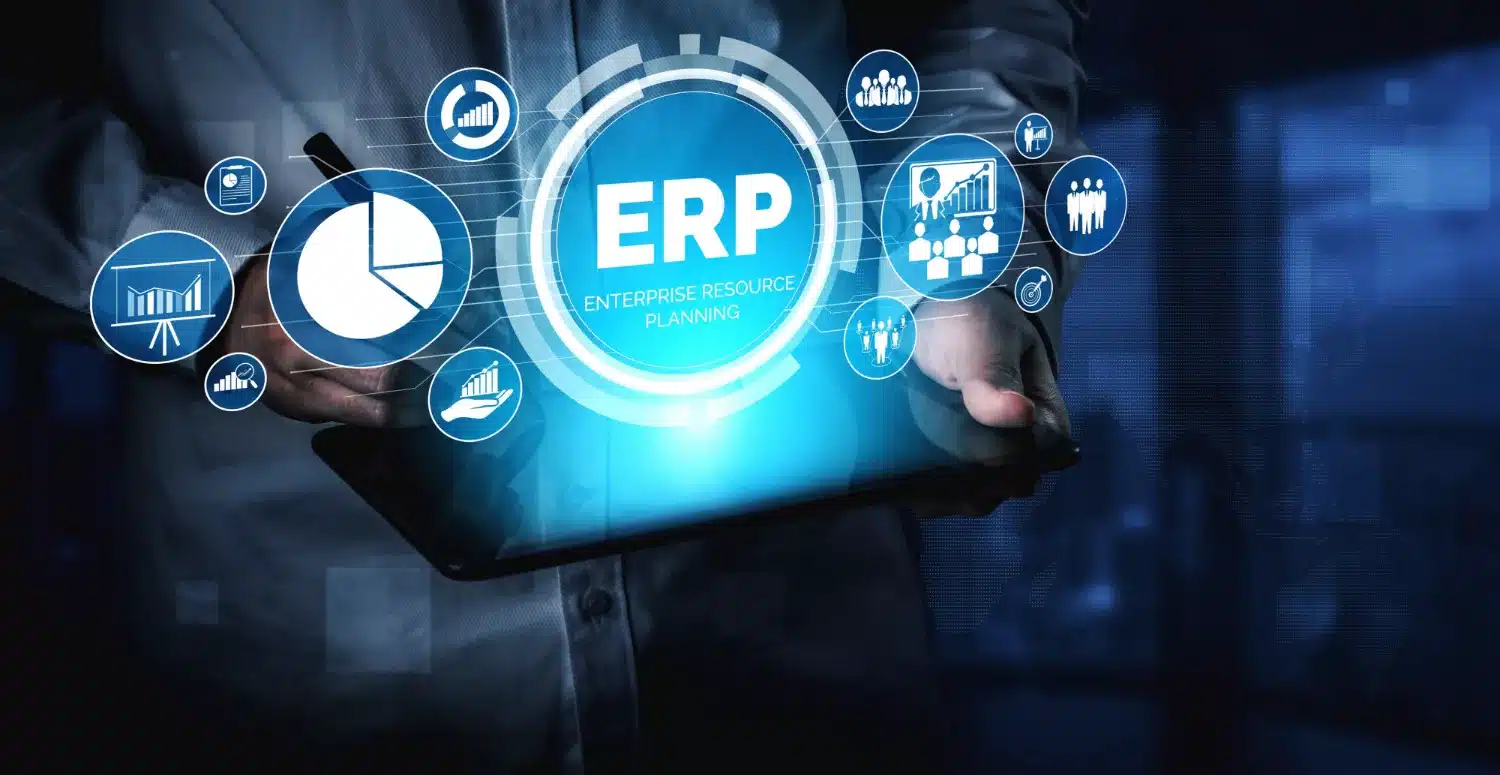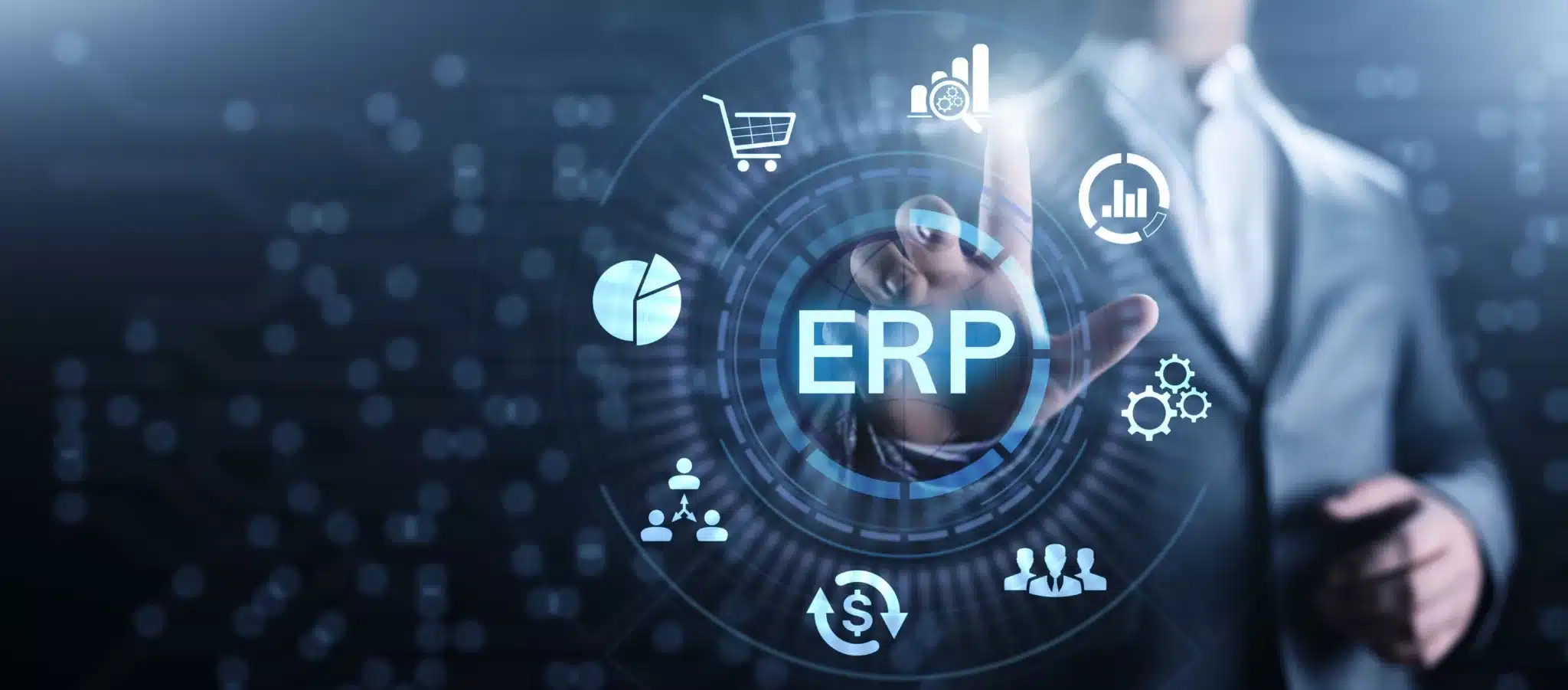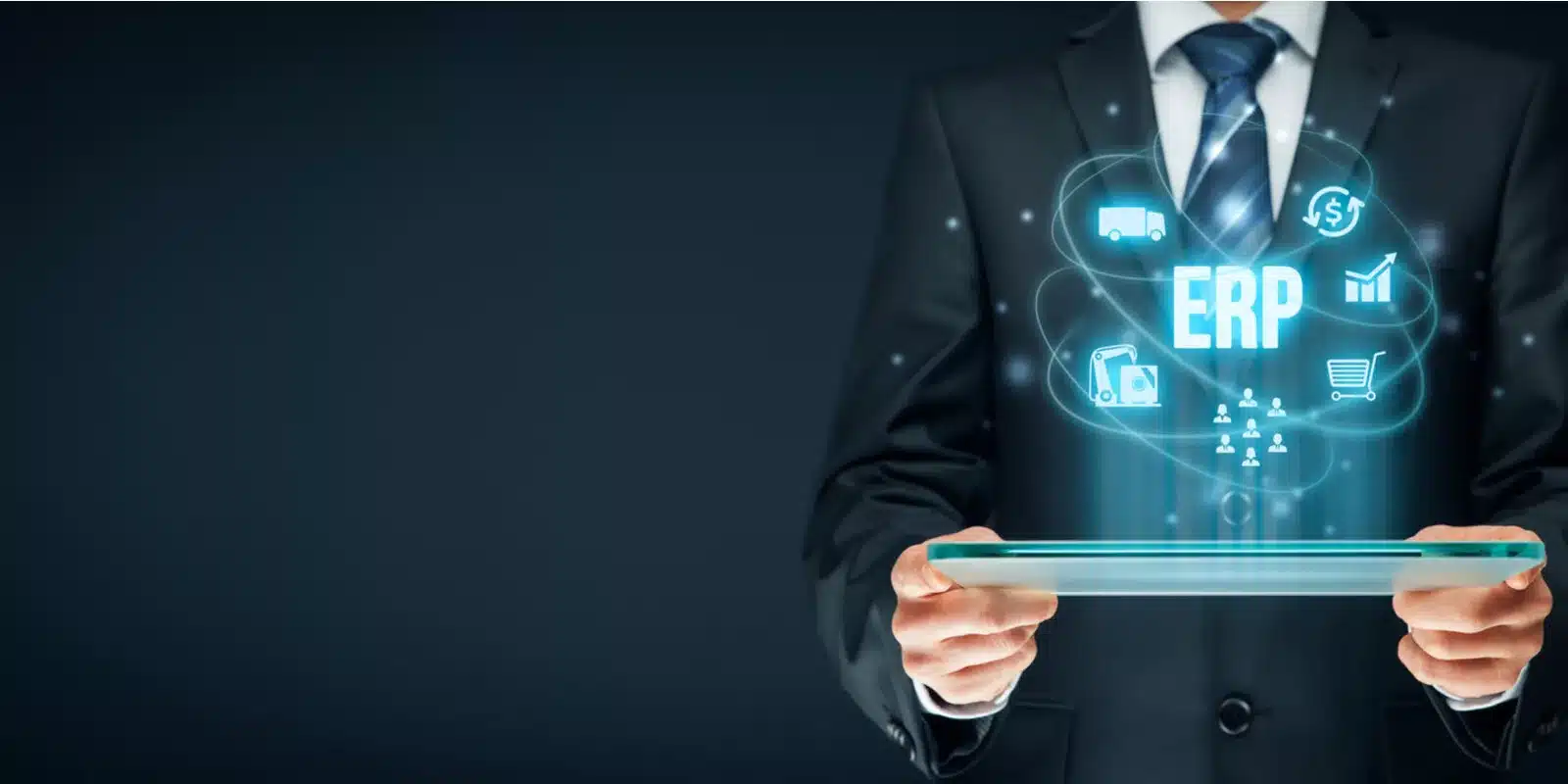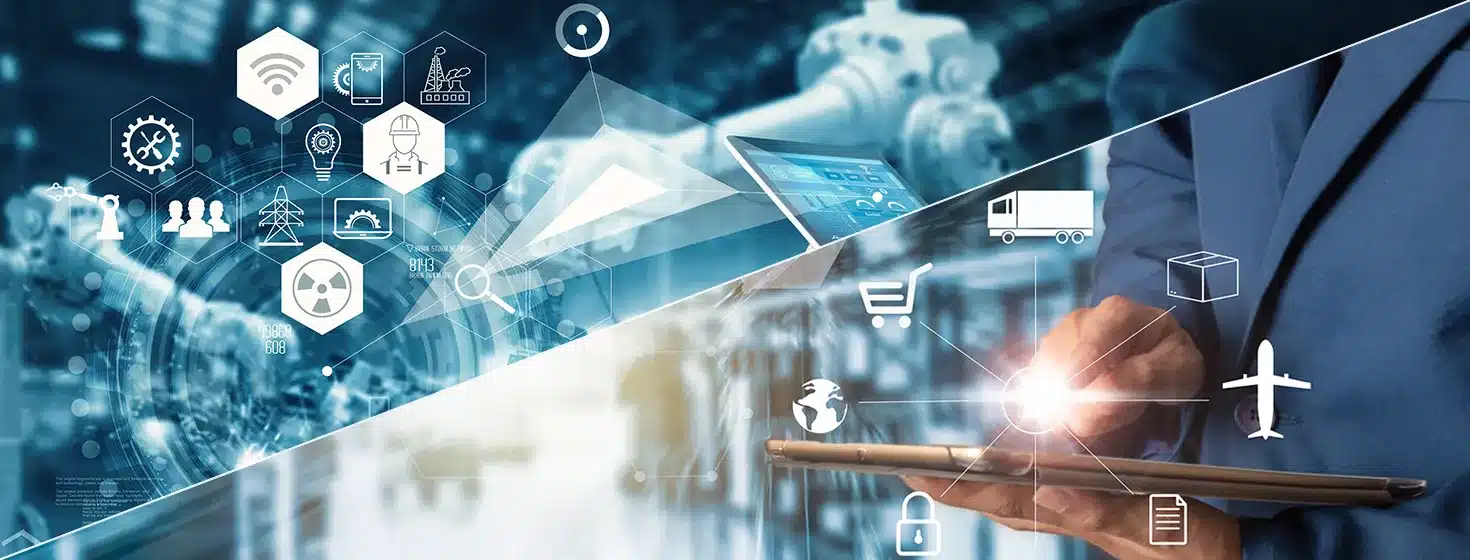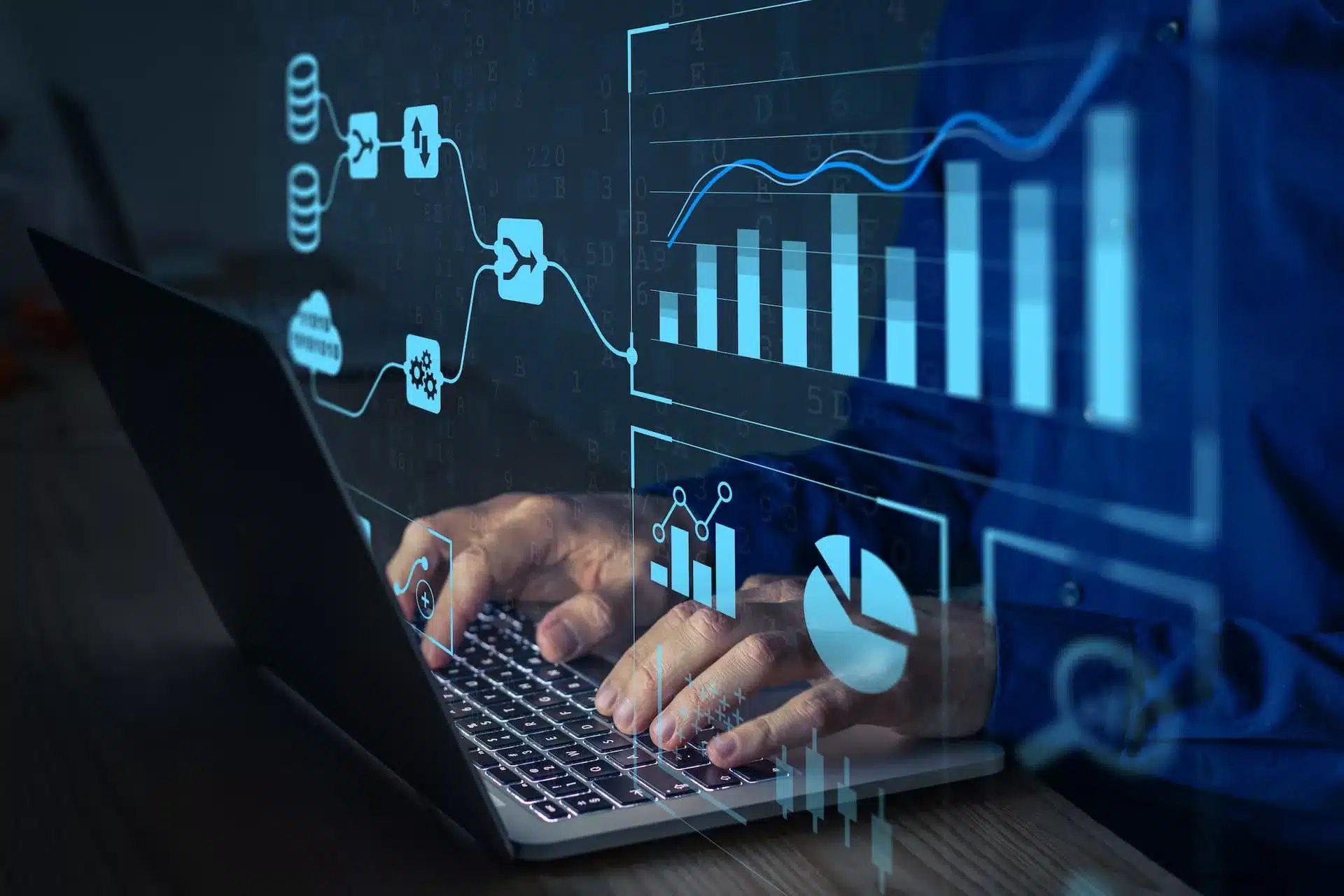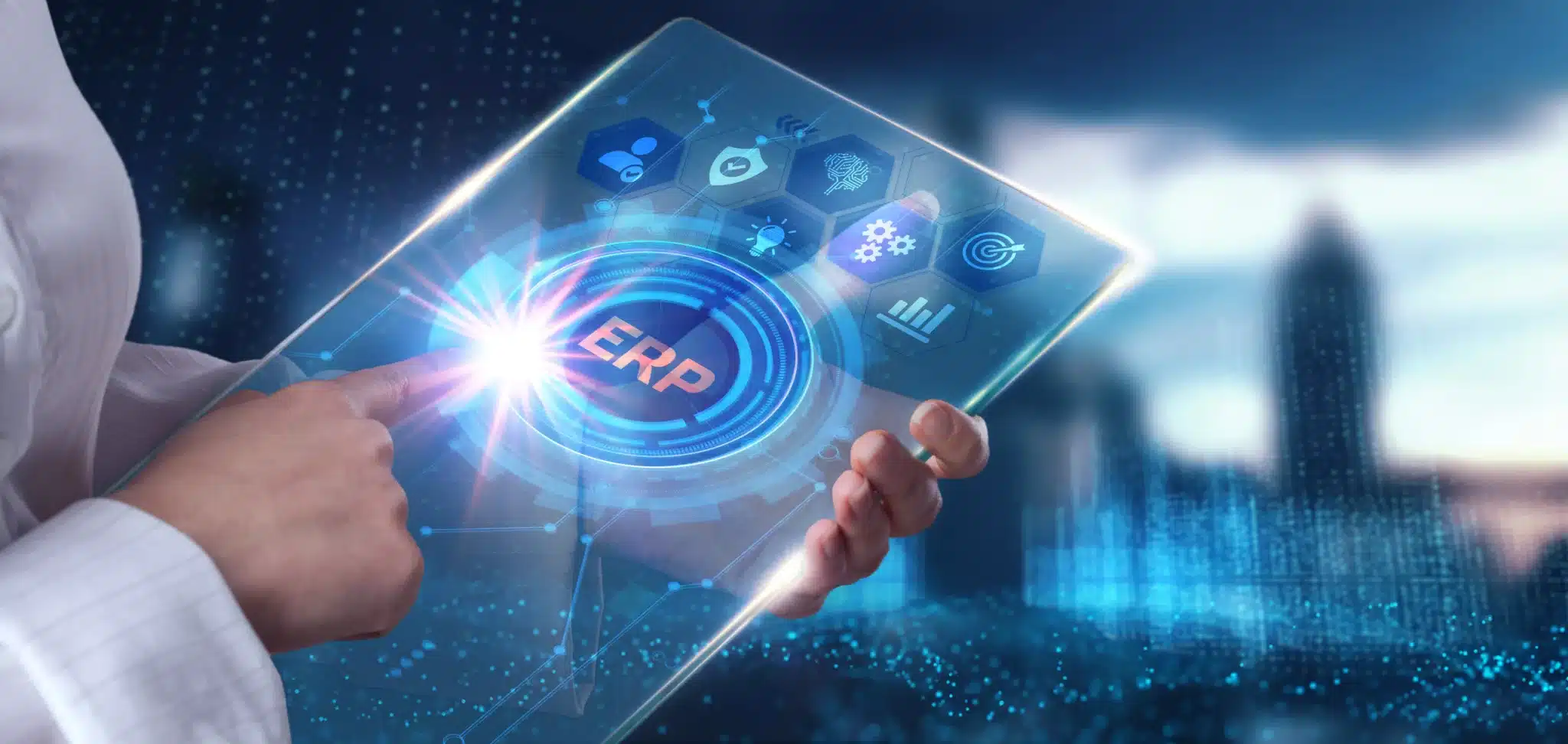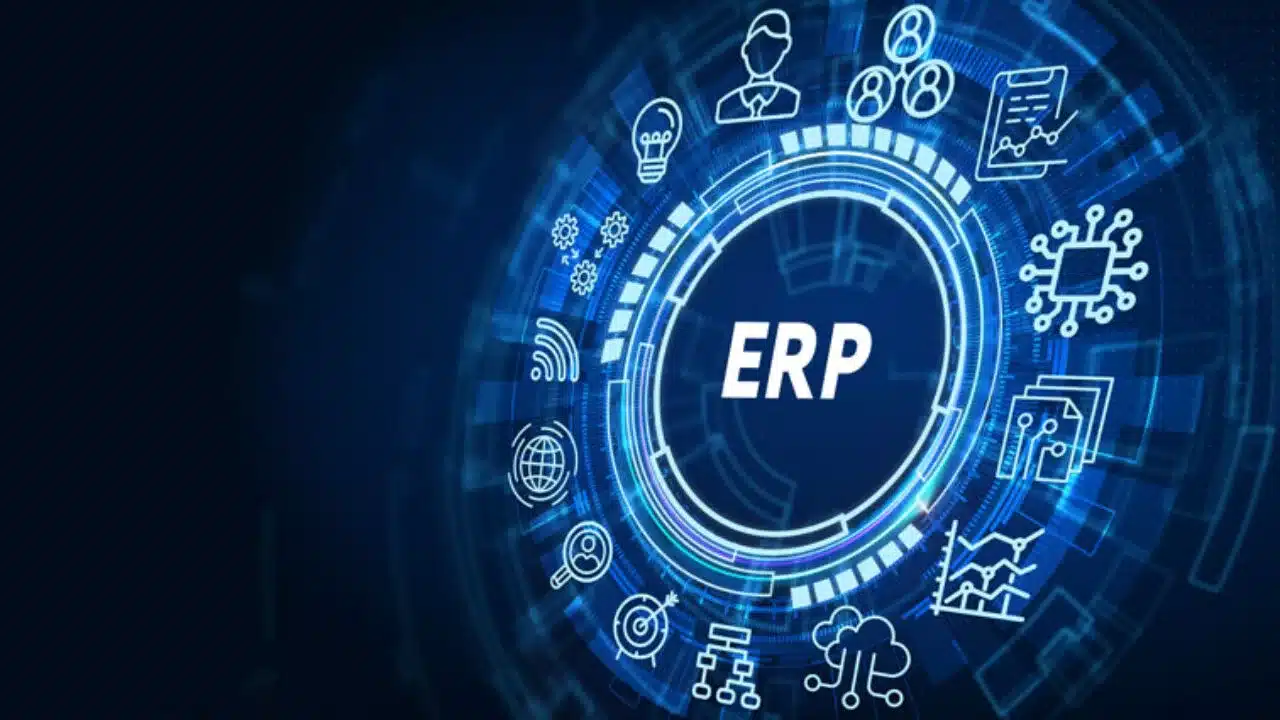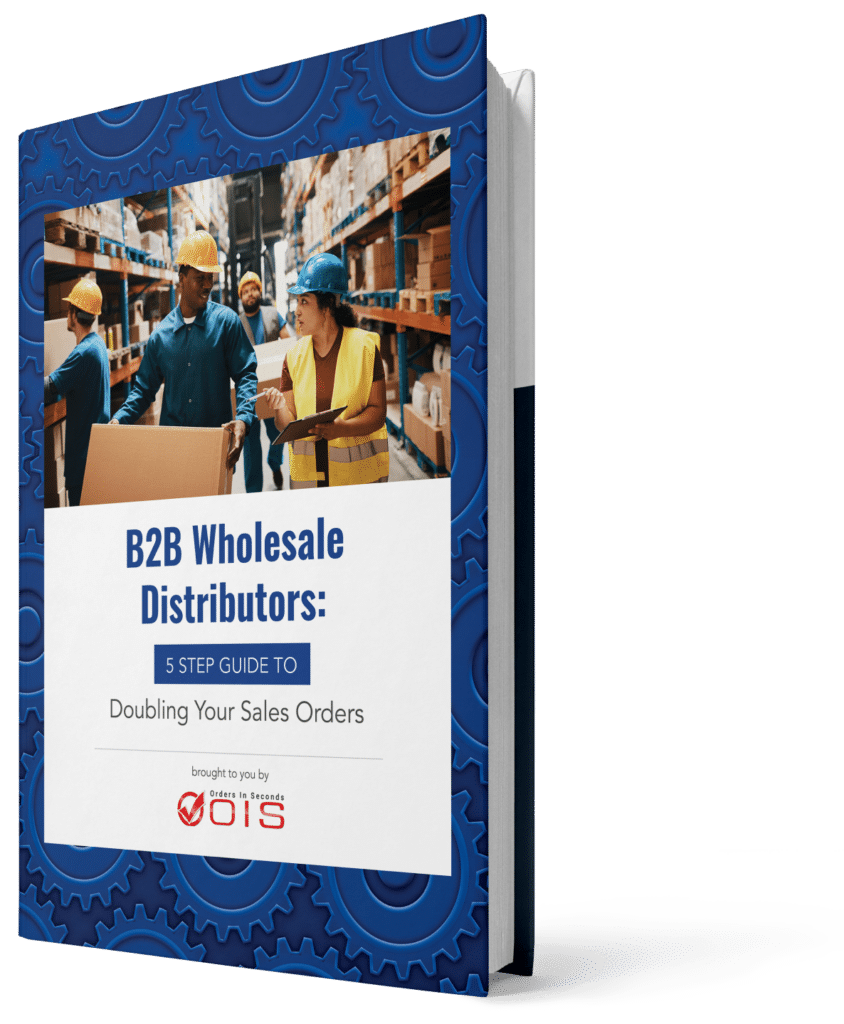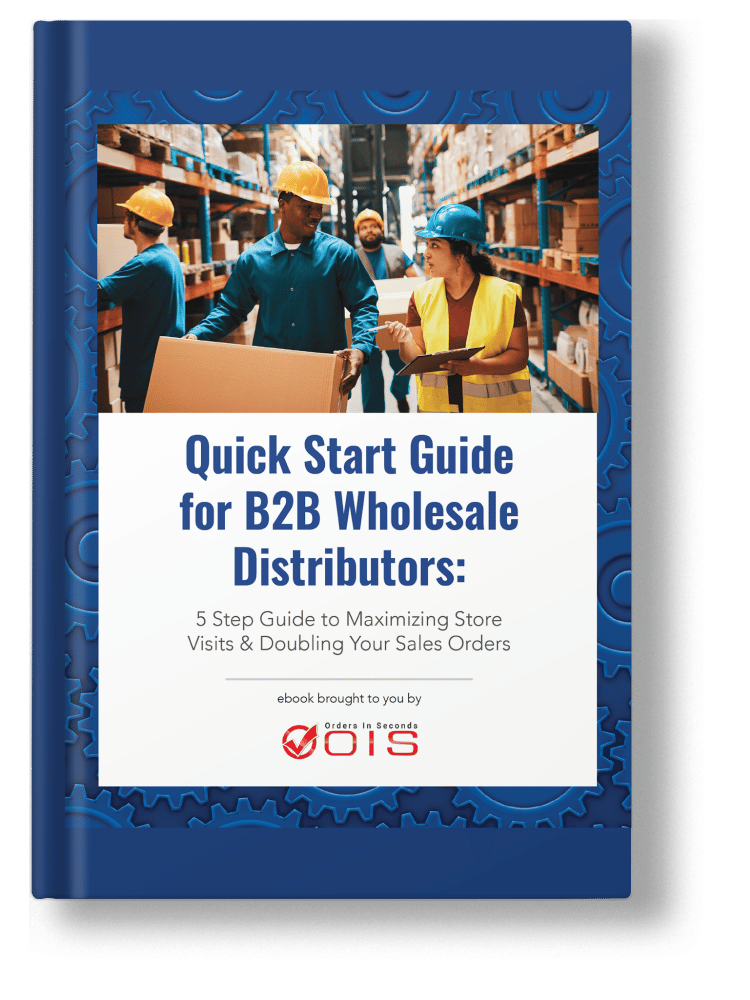What Is An Enterprise Resource Planning (ERP) System?
An Enterprise Resource Planning system is a set of integrated software applications that allow the automation of many business practices related to the operational or productive aspects of a company, simplifying and centralizing the information of all the areas that compose it: purchasing, production, logistics, finance, human resources, marketing, services, projects and customer management.
Enterprise Resource Planning (ERP) is a critical requirement for businesses that want to optimize their operations and streamline their processes. An enterprise processing system can help businesses manage their master data, transactional data, and enterprise data more effectively. By centralizing all data into one system, businesses can make more informed decisions and improve their efficiency.
Enterprise Resource Management (ERP) refers to a comprehensive suite of software applications designed to integrate and automate key business processes across an organization. ERP applications provide functionality to manage various business functions such as finance, human resources, sales, and supply chain management.
An ERP system is a business management software that provides a centralized platform for managing and sharing data across departments and business functions.
Enterprise Resource Planning (ERP) software can help improve supply chain management by automating supply chain processes and providing real-time visibility into inventory levels, production schedules, and customer demand. An efficient supply chain management strategy can help organizations optimize their supply chain processes, reduce costs, and improve customer satisfaction.
ERP systems provide a robust set of tools to support efficient supply chain management processes, including procurement, inventory management, production planning, and order fulfillment. By leveraging ERP software, organizations can improve their supply chain management processes and drive operational efficiencies.
Is an ERP System easy to learn?
Learning an ERP system can vary in difficulty depending on factors such as the complexity of the software and the user’s familiarity with similar systems. While some ERP systems may have intuitive interfaces and user-friendly features, others might require extensive training and experience to master.
What are ERP Systems examples?
Examples of ERP systems include SAP ERP, Oracle ERP Cloud, Microsoft Dynamics 365, and NetSuite. These systems integrate various business processes such as finance, human resources, supply chain management, and customer relationship management into a single platform, streamlining operations and improving efficiency.
Can ERP Systems be capitalized?
Yes, ERP systems can be capitalized as they are considered long-term assets that provide significant benefits to a business over multiple accounting periods. Companies typically capitalize the costs associated with implementing and customizing an ERP system, including software licenses, implementation services, and related infrastructure expenses.
How can an ERP System help a business?
An ERP system can help a business by providing a centralized platform for managing core business processes such as accounting, inventory management, procurement, and sales. By integrating these processes, an ERP system enables real-time visibility into operations, improves decision-making, enhances collaboration, and increases overall productivity.
What are ERP System benefits?
The benefits of an ERP system include improved operational efficiency, enhanced decision-making capabilities, better customer service, streamlined business processes, reduced costs, increased data accuracy, and compliance with regulatory requirements. By consolidating data and automating routine tasks, an ERP system helps businesses become more agile and competitive in today’s fast-paced market.
Why is ERP System important?
An ERP system is important because it serves as the backbone of modern businesses, facilitating the integration and automation of various departments and processes. By providing a unified view of operations and enabling efficient resource allocation, an ERP system helps businesses optimize performance, adapt to changing market conditions, and achieve long-term growth and success.
ERP Systems
What is an ERP System and What Is Its Role?
Enterprise Resource Planning (ERP) software enables organizations to use the entire suite of integrating applications. ERP software automates and streamlines operations to make operations easier. ERP enables the full visibility into business operations.
ERP stands for enterprise resource planning. It is an underlying software and system for business management, including production, service management, finance and other business functions. Enterprise Resource Planning can help automate and simplify individual activities within the business including accounting and purchasing, project management, and business relationship management.
Understanding ERP: Full Form and Key Features
ERP, or Enterprise Resource Planning, is a type of business intelligence software that helps organizations manage their operations, resources, and data from a single platform. The ERP acronym in business stands for Enterprise Resource Planning. ERP software solutions offer features such as inventory management, supply chain management, financial management, and human resources management. By using an ERP package, organizations can optimize their business processes, reduce costs, and improve efficiency.
Understanding ERP: Define, Products, and Software Companies
ERP Define: Enterprise Resource Planning (ERP) is a business management software that integrates all core business processes such as accounting, human resources, supply chain, customer relationship management, and inventory management. The main objective of an ERP system is to provide real-time access to relevant data, improve collaboration and efficiency, and automate routine tasks to reduce operational costs. ERP systems typically consist of a suite of modules that can be customized to meet the unique requirements of each business. These systems are designed to streamline business operations and help businesses make data-driven decisions.
ERP Products and Software Companies: There are many ERP products and software companies in the market that offer a range of solutions to meet the needs of different industries. Some of the top ERP products include SAP, Oracle, Microsoft Dynamics, and Infor. These products offer a range of features and functionalities that cater to the specific needs of each business. ERP software companies provide implementation, customization, training, and support services to ensure that businesses can get the most out of their ERP system. When selecting an ERP software company, it is essential to consider factors such as the vendor’s reputation, experience, expertise, and customer support. A good ERP software company should be able to provide comprehensive training and support to help businesses implement and use their ERP system effectively.
ERP, or enterprise resource planning, is a software system used by businesses to manage their operational and transactional data. ERP system processes include the integration of data from different departments such as finance, human resources, and sales, into a central database. This allows for real-time data analysis and reporting, streamlining business processes and increasing productivity. The functionalities of an ERP system include inventory management, customer relationship management, and supply chain management, among others. ERP system examples include SAP, Oracle, and Microsoft Dynamics.
When it comes to ERP system price, it can vary greatly depending on the size and needs of the business. The enterprise resource planning software price can range from a few thousand dollars to millions of dollars, depending on the number of users, modules, and customization required. To ensure businesses choose the right ERP system, ERP recommendations should be based on a thorough analysis of the company’s needs and objectives. It’s essential to choose a system that can effectively streamline and automate business processes, ultimately leading to increased efficiency and profitability. Co to jest ERP system refers to what an ERP system is in Polish.
Definition of Enterprise Resource Planning (ERP)
Enterprise resource planning refers to software used by organizations to run their daily business operations. A full ERP system is also integrated with a business performance manager that provides tools for planning, budgeting and predicting financial performance. ERP systems combine many business processes enabling information flows between them. By combining the data collected by different sources of transaction data, ERP solutions eliminate data duplication and ensure data integrity.
Enterprise Resource Planning software prices can vary significantly depending on the size and complexity of the solution required. In Florida, there are many enterprise resource planning solutions available, ranging from off-the-shelf solutions to customized solutions tailored to a specific business’s needs. Modern ERP solutions support the integration of different systems and processes, which helps businesses avoid the challenges of managing different systems separately. One of the main challenges of ERP is maintaining data quality. Poor data quality can negatively impact the business’s decision-making, resulting in incorrect and inaccurate information. Therefore, it is essential to have data governance and data quality practices in place to ensure the accuracy of the data being used.
▸▸ What Are You Waiting For? Download Our FREE In-Depth Guide for B2B Wholesale Distributors Today!
ERP System Processes: Streamlining Business Operations
Enterprise Resource Planning (ERP) systems are designed to streamline business operations by integrating and automating key processes. ERP systems typically include modules for financial management, human resources, supply chain management, and customer relationship management. By providing a unified view of business operations, ERP systems enable organizations to make more informed decisions and improve operational efficiency.
How ERP Works: A Closer Look
ERP systems work by integrating data from across an organization’s various business functions, providing a single source of truth for decision making. Information is entered into the ERP system through various channels, such as manual data entry or automated data feeds. The ERP system then processes this data, applying business rules and workflows to automate key processes and ensure data accuracy. The system also generates reports and dashboards that provide insight into key performance indicators, enabling organizations to make data-driven decisions.
How ERP Works in an Organization: Benefits and Considerations
Implementing an ERP system can provide significant benefits for organizations, such as improved efficiency, better decision making, and enhanced collaboration. However, there are also considerations to keep in mind when implementing an ERP system, such as ensuring data quality and security, managing system upgrades and customization, and providing training and support for employees. Successful implementation of an ERP system requires careful planning, stakeholder engagement, and ongoing management and maintenance.
ERP Stands for Enterprise Resource Planning, But What Does ERP Mean?
The simplest way to define ERP is to think about all the core business processes needed to run a company: finance, HR, manufacturing, supply chain, services, procurement, and others. At its most basic level, ERP helps to efficiently manage all these processes in an integrated system. It is often referred to as the system of record of the organization
Modern cloud ERP software also combines enterprise management processes with businesses across the globe – giving companies flexibility, collaboration and fast speed needed to survive.
Enterprise resource planning, commonly known as ERP, is an electronic resource planning system that integrates all aspects of a business’s operations into a single software application. ERP solutions provide companies with a centralized system for managing their business processes, which can lead to increased efficiency, better decision-making, and greater productivity. While often associated with large corporations, ERP software apps are becoming increasingly accessible to small businesses.
These smaller companies can also benefit from the many uses of ERP, which include managing inventory, tracking orders, and streamlining financial operations. Essentially, an ERP system is a powerful tool that enables businesses of all sizes to manage their operations more effectively and efficiently. In essence, ERP systém co to je is a software solution that can help businesses gain a competitive advantage by improving their operations and reducing costs.
Why the Importance of ERP System?
The Need
The From small to large organizations, at every growing stage businesses need access to information that empowers their daily decisions. Many businesses incorporate different erp softwares and IT solutions to solve specific needs, as they’re required. Over time, they find themselves with a ‘puzzle’ of applications with limited business functions and no connection between them, making the proper management of business data almost impossible and hindering communication between the various systems and departments.
The Solution
At this point, a comprehensive solution that links and connects all the company’s information becomes imperative. With an ERP system, it is possible to centralize in a single software all the financial management; internal and external information management that the company needs to be competitive. It is a program easily accessed by all departments, so that they all handle the same data.
However, this is just the starting point of what an ERP can do for a business, below is an erp quick-start and various erp softwares, we delve a little deeper into two different types of businesses, wholesale distribution and manufacturing and how they benefit greatly from implementing an ERP solution.
Choosing the Right Enterprise Resource Planning Software Packages
Choosing the right enterprise resource planning software packages can be a daunting task for any business. With so many options available, it can be difficult to determine which ERP package is right for your organization. It’s essential to consider factors such as the size of your business, the industry you operate in, and the specific features you need. Enterprise resource planning firms can help you choose the right ERP software solutions for your business needs.
Why Is the Importance of ERP for a Wholesale Distribution Business?
Being at the center of the supply chain, wholesale distribution involves a variety of core business processes and workflows that require a high efficiency rate to fulfill the entire operational chain. If employees manually manage these processes with separate systems, it isn’t easy to monitor and analyze the performance of each one of them.
An ERP strengthens the production chain, consequently increasing the profitability of the business. Having said that, let’s review some of the benefits.
1. Deeper Insights Concerning Business Operations
Data from across the organization and all corners of a wholesale distributor’s supply chain can be tracked and controlled in real-time with an ERP system. This allows wholesale distributors to run more precise operations and have a better understanding of what’s going on in the company using business intelligence; as well as how erp can improve business efficiency and strategic decision-making so they can respond quickly as prices, logistics, and markets change.
2. Automation To The Next Level
ERP makes it easier for wholesale distribution businesses to significantly increase their automation levels, which represents a significant advantage. Most business processes, if not all, are now digital. ERP makes it possible to easily automate these processes since all aspects of operations flow through the system, saving time and resources by letting the ERP system processes accurately handle transactions and workflows without manual intervention.
3. Boost Business Performance
The best solution for growing wholesale distributors is to acquire an ERP platform that will give you visibility of the different moving parts from within your organization. From sales, marketing, inventory management, accounting and more.
An ERP system will not only save you time but increase earnings, which is a result of having a better outlook of your inventory and, consequently, creating efficient workflows.
An ERP implementation can also help wholesale distributors with launching new product lines into the market. You can rely on one platform for each step of the process, starting from placing an order to all the way through fulfillment, delivery, and invoicing.
Enterprise Resource Planning Success Stories: How ERP Transformed Businesses
Enterprise resource planning success stories showcase how ERP software solutions have transformed organizations’ operations and boosted their bottom line. For example, a global manufacturing company implemented an ERP system to manage its supply chain, inventory, and financials. As a result, the company saw a 20% increase in productivity and a 15% reduction in inventory costs. Another example is a healthcare organization that implemented an ERP system to manage patient data, financials, and operations. The organization saw a 30% increase in efficiency and a 20% reduction in administrative costs. These success stories demonstrate the significant impact that enterprise resource planning can have on businesses.
Why is an ERP system important for a Manufacturer?
Considering that manufacturing companies have so many moving parts, there is, of course, a lot more personnel involved in all the processes, increasing the possibility of errors – but also the opportunity for optimization. This is where ERPs come in handy, by helping streamline workflows across the business through one integrated application.
Let’s dig deeper into the benefits:
1. Better Resources Management
ERP systems increase the overall efficiency of manufacturing businesses by managing and improving the way company resources are used. Improving and/or reducing the amount of resources required without jeopardizing quality is the key to effectively improving business growth and profitability. With ERP software, manufacturing companies have the ability to manage critical aspects of the entire manufacturing process, from plant operations to supply and inventory planning.
2. Efficient Supply Chain and Order Fulfillment
Manufacturers can use an ERP software system to streamline business processes, to make sure every piece of the machinery runs properly, and that client demands are being fulfilled. An ERP system supports supply chain management, such as coordination, stock management, and delivery of goods. Manufacturers can also use ERP features to design better logistics strategies, which will help them save money on operating and administrative expenses.
3. Safer and More Accessible Data
Manufacturers should get rid of manual processes that can lead to costly errors. Being dependent on paper records is inefficient and risky since they can be easily damaged or lost. Using an ERP system, manufacturers have access to their business information in real time and from any location.
Determine the ERP Requirements
Business requirements for ERP systems can be a complex process, but it is an important step in ensuring the success of the ERP implementation. Here are the steps organizations can follow to determine their ERP requirements checklist:
-
Assessment of business processes: Start an ERP project and evaluate the current business processes and identify areas for improvement and streamlining.
-
Gathering user requirements: Develop an ERP requirements template, obtain input from key stakeholders, such as employees, managers, and customers, to understand their needs and requirements for the ERP functional requirements checklist.
-
Data management evaluation: Assess the current data management system and determine the data that needs to be integrated into the ERP system.
-
Scalability consideration: Evaluate the future growth of the organization and ensure the ERP system can accommodate that growth.
-
Integration evaluation: Determine the need for integrating the ERP system with other existing systems and the level of integration required.
-
Budget establishment: Set a budget for the ERP implementation and prioritize the requirements based on the budget constraints.
-
Security evaluation: Ensure that the ERP system can securely store and manage sensitive data and protect it from unauthorized access.
-
Deployment decision: Choose the deployment model that best fits the organization’s needs, such as on-premise, cloud-based, or a hybrid solution.
-
Support planning: Make sure that adequate support and maintenance are in place to keep the ERP system running smoothly.
Enterprise Asset Management: An Important Component of ERP
Enterprise asset management is an important component of ERP that helps organizations manage their assets, such as equipment, facilities, and vehicles. ERP software solutions that include enterprise asset management can help businesses track the lifecycle of their assets, from acquisition to disposal. By using enterprise asset management, organizations can optimize their asset utilization, reduce maintenance costs, and extend the life of their assets. Integrating enterprise asset management with other ERP modules, such as financials and supply chain management, can help businesses make data-driven decisions and improve their overall operations.
Who makes ERP software / ERP Systems
Now that you understand what an ERP system is, the ERP importance and why it’s important for your manufacturing or wholesale business, we’ve created a list of popular ERP systems for you to review. Read to see which one could fit your business needs:
1. QuickBooks
This is the most widely used of erp for small business for accounting software, for managing income and expenses and for keeping track of a company’s financial health. Learn More
▸▸ Learn more about how Orders in Seconds and QuickBooks integration offers an all-in-one order management and accounting solution for manufacturers and wholesalers
2. SAP ERP
It is one of the most complete ERP systems on the market, which is mainly useful for medium-sized and large companies due to its very broad scope. Learn More
3. Netsuite
Netsuite helps companies manage their business processes with a single, fully integrated system that covers finance, procurement, supply chain, and more. Additionally, Netsuite has a very robust and advanced customer relationship management (CRM) module. Learn More
4. Oracle ERP Cloud
Oracle Cloud Enterprise Resource Planning is a cloud-based ERP software application suite introduced by Oracle Corporation in 2012. Oracle ERP Cloud manages enterprise functions including accounting, financial management, project management, and procurement. Learn More
5. Acumatica Cloud ERP
Acumatica provides cloud and browser based ERP business management software for small and medium-sized businesses. Learn More
6. SAGE
Businesses that rely on its services benefit from the platform’s easy scalability and user-friendly interface. It allows them to streamline processes and interact more efficiently across departments. Learn More
7. Microsoft Dynamics
The popularity of this ERP comes from being one of Microsoft’s most effective products today. It helps companies increase financial performance, reduce response times and more. Learn More
Common Database vs Industry Specific ERP: Which One to Choose?
When it comes to Enterprise Resource Planning (ERP) systems, one of the key decisions to make is whether to go for a common database solution or an industry-specific one. A common database ERP solution is designed to cater to the needs of businesses across various industries. This means that the software comes with a wide range of functionalities that can be tailored to the specific requirements of each business. On the other hand, an industry-specific ERP solution is built to meet the specific needs of a particular industry, such as manufacturing or distribution. While this may seem like an ideal choice for businesses operating in a specific industry, it may not offer the same level of flexibility as a common database solution.
Choosing the Right ERP Vendor for Manufacturing Distribution
Manufacturing and distribution are two critical sectors of the economy that require specialized ERP solutions. These solutions are designed to help businesses optimize their operations, streamline their supply chains, and improve overall productivity. However, with so many ERP vendors available in the market, it can be challenging to choose the right one for your business. The top ERP vendors for manufacturing distribution should have a proven track record of success, a deep understanding of the industry, and a robust set of features and functionalities that cater to the unique needs of these sectors. Additionally, the vendor should be able to provide comprehensive training and support to ensure that businesses can get the most out of their ERP system.
In conclusion, enterprise resource planning solutions are essential for businesses that want to streamline their operations and optimize their efficiency. These solutions can help businesses manage their master data, transactional data, and enterprise data more effectively. While the cost of these solutions can vary, modern ERP solutions support the integration of different systems and processes, which helps businesses improve their efficiency. To get the most out of an ERP system, it is essential to maintain data quality and governance practices, ensuring that the data used is accurate and reliable.
What You Need to Know About ERP Systems and Implementation
Enterprise Resource Planning (ERP) systems are essential tools for modern businesses. In this post, we’ll explore the meaning and functions of ERP systems and discuss the importance of selecting the right ERP software provider for coordinated invoicing across global ERP.
ERP Meaning and Functions
ERP is an acronym for Enterprise Resource Planning. An ERP system integrates all of a company’s business processes into a single system. The functions of an ERP system include financial management, supply chain management, human resources, and inventory management, among others. The purpose of an ERP system is to provide a unified view of the company’s operations, streamline processes, and improve productivity.
ERP Order Meaning
ERP order refers to the process of creating and fulfilling customer orders within an ERP system. This process typically involves creating a sales order, picking and packing the products, and shipping them to the customer. The ERP system tracks each step of the process and provides real-time visibility into the status of each order.
ERP Implementation Process
Implementing an ERP system can be a complex and challenging process. It involves a series of steps, including defining the requirements, selecting the right ERP software provider, configuring the system, testing, training, and deployment. It’s essential to have a clear understanding of the ERP implementation project’s scope, goals, and timeline to ensure a successful implementation.
Selecting the Right ERP Software Provider
Choosing the right ERP software provider is critical to the success of your ERP implementation. A reputable enterprise resource planning firm will have experience in your industry and provide solutions that meet your specific requirements. Look for an ERP software provider that offers coordinated invoicing across global ERP to ensure seamless integration of your business processes.
Free ERP Requirements Template
If you’re considering implementing a new ERP system, you can use a free ERP requirements template to help you define your needs and select the right software provider. This template will help you identify the features and functions you require in an ERP system, as well as the timeline and budget for your implementation.
Successful ERP Implementation
A successful ERP implementation requires careful planning, thorough testing, and effective training. It’s essential to involve stakeholders in the process, communicate regularly, and manage expectations. By selecting the right ERP software provider, defining your requirements, and following a well-defined implementation process, you can achieve a successful ERP implementation and streamline your business processes.
In conclusion, ERP systems are essential tools for modern businesses, providing a unified view of business operations, streamlining processes, and improving productivity. When implementing a new ERP system, it’s important to select the right ERP software provider, define your requirements, and follow a well-defined implementation process to ensure success. With coordinated invoicing across global ERP, you can achieve seamless integration of your business processes and streamline your operations.
Final Thoughts
At Orders in Seconds, we understand how important an enterprise resource planning software is for the internal and external functioning of a wholesale distributor or manufacturing business. Our mobile apps easily integrate with many popular enterprise resource planning systems.
We help you achieve better order fulfillment workflows with apps to improve sales efficiency, warehouse and inventory management, delivery and merchandising. Learn more by Scheduling a Call to talk to one of our experts about how the OIS solution can integrate with different erp solutions.
Components of Enterprise Management System:
An enterprise management system is a software platform designed to help businesses manage and automate their core business processes. Some of the key components of an enterprise management system include customer relationship management (CRM), supply chain management (SCM), human resource management (HRM), financial management, and inventory management. These components work together to help businesses streamline their operations, increase efficiency, and reduce costs.
Concept of Enterprise Resource Planning:
The concept of enterprise resource planning (ERP) refers to a type of software platform that is designed to help businesses manage and automate their core business processes. ERP systems typically integrate a variety of different functions, such as financial management, supply chain management, human resource management, and customer relationship management, into a single platform. This integration allows businesses to streamline their operations, reduce costs, and improve efficiency.
What Does ERP Stand For?
ERP stands for Enterprise Resource Planning. It is a type of software that helps businesses manage their core processes and resources, including inventory, finances, human resources, and more. ERP systems are designed to provide a centralized view of a company’s operations, making it easier to monitor performance, identify areas for improvement, and streamline workflows. By integrating multiple systems into one, ERP software can help businesses reduce errors, save time, and improve overall efficiency.
Discuss Enterprise Resource Planning:
Enterprise resource planning (ERP) is a software platform that is designed to help businesses manage and automate their core business processes. ERP systems typically integrate a variety of different functions, such as financial management, supply chain management, human resource management, and customer relationship management, into a single platform. This integration allows businesses to streamline their operations, reduce costs, and improve efficiency.
Human Resource Management:
Human resource management (HRM) refers to the process of managing the employees of an organization. This can include activities such as recruiting, hiring, training, and development, as well as managing employee benefits and compensation. HRM is a critical function in any organization, as it helps to ensure that the business has the right people in the right roles, and that those people are motivated and engaged.
Financial Data:
Financial data refers to any information related to the financial performance of a business. This can include data such as revenue, expenses, profits, cash flow, and balance sheets. Financial data is critical for businesses, as it helps to inform decision-making, identify areas for improvement, and track progress over time.
Enterprise Management Systems:
Enterprise management systems (EMS) are software platforms designed to help businesses manage and automate their core business processes. These systems typically integrate a variety of different functions, such as financial management, supply chain management, human resource management, and customer relationship management, into a single platform. EMS can help businesses streamline their operations, reduce costs, and improve efficiency.
Do SaaS Companies Need ERP?
SaaS companies, or software as a service providers, offer cloud-based solutions that allow businesses to access software and services through the internet. While SaaS companies may not need an ERP system in the traditional sense, many of the same benefits can be achieved through a SaaS ERP system. These systems offer the same centralized view of operations and can help businesses streamline their processes, reduce errors, and improve efficiency. Additionally, SaaS ERP systems can be more cost-effective than traditional ERP software, as they are typically subscription-based and do not require large up-front investments in hardware or software. Overall, while SaaS companies may not need ERP software in the traditional sense, they can still benefit from the use of a SaaS ERP system to improve their operations and achieve greater efficiency.
Enterprise Resource Planning (ERP) software providers offer a suite of integrated applications designed to automate and manage business processes. The purpose of an ERP system is to provide a centralized view of an organization’s data, streamline operations, and improve decision-making. An ERP system can help businesses reduce costs, increase efficiency, and enhance customer satisfaction. To define an ERP overview demo, it’s important to understand that an ERP demo is a presentation that showcases the features and capabilities of an ERP system. An ERP overview demo provides an overview of the various modules and functionalities of the software. It typically includes a walkthrough of the user interface, data management, and reporting capabilities.
ERP Full Form in E-commerce: Explained and Simplified
ERP, in the context of e-commerce, stands for Enterprise Resource Planning. Learn what ERP entails and how it plays a crucial role in streamlining business operations, improving efficiency, and enhancing overall performance in the e-commerce industry.
Understanding ERP Technology: A Game-Changer for Businesses
Discover the transformative power of ERP technology. Explore how it integrates various business functions, optimizes processes, enhances collaboration, and enables data-driven decision-making, revolutionizing the way organizations operate and grow.
Finding the Best ERP for Professional Services: A Guide for Success
Professional service firms require specialized ERP solutions. Dive into the world of ERP software tailored for professional services, offering features like project management, resource allocation, time tracking, and client management to maximize productivity and profitability.
Unlocking the Business Value of ERP: Beyond Operational Efficiency
Explore the broader impact of ERP on businesses. Learn how ERP systems contribute to strategic planning, data-driven insights, improved customer satisfaction, and overall business growth, creating substantial value across the organization.
Corporate ERP Systems: Streamlining Operations for Large Enterprises
Large enterprises require robust ERP systems to handle complex operations. Delve into the world of corporate ERP systems, designed to manage intricate organizational structures, diverse business units, and multi-location operations, ensuring seamless integration and efficient workflows.
Navigating the Supply Chain Process: An Overview of Success
Understand the fundamentals of the supply chain process. From procurement to production, distribution to customer service, explore the stages involved and how effective supply chain management drives efficiency, reduces costs, and enhances customer satisfaction.
Optimizing Efficiency: Unveiling the Supply Chain Management Process
Explore the intricacies of the supply chain management process. From inventory management to demand forecasting, logistics to order fulfillment, discover how organizations strategically manage their supply chain to meet customer demands while minimizing costs and maximizing profitability.
Traditional Electronic Data Interchange: Paving the Way for Efficient Supply Chains
Learn about the traditional electronic data interchange (EDI) and its role in supply chain management. Explore how EDI facilitates the exchange of business documents electronically, automating processes, improving accuracy, and enhancing collaboration among trading partners.
Streamlining Operations: The Power of a Supply Chain Management System
Discover the benefits of a dedicated supply chain management system. Learn how advanced software solutions optimize supply chain processes, synchronize activities, provide real-time visibility, and empower organizations to make informed decisions and gain a competitive edge.
Why Supply Chain Management is Important: Key Factors for Success
Recognize the significance of effective supply chain management. From meeting customer expectations to managing risks, reducing costs to improving sustainability, delve into the reasons why organizations prioritize supply chain management as a critical component of their success.
ERP Ecommerce Meaning:
ERP Ecommerce refers to the integration of Ecommerce capabilities within an Enterprise Resource Planning (ERP) system. It enables businesses to manage their online sales, inventory, customer data, and other Ecommerce processes through a centralized ERP platform. This integration allows for seamless coordination between online sales channels and backend business operations, leading to improved efficiency, visibility, and customer experience in the Ecommerce domain.
Define ERP and Describe Its Functionalities:
ERP stands for Enterprise Resource Planning. It is a comprehensive software system that integrates various business functions and processes into a single, unified platform. ERP systems facilitate the management of core business areas such as finance, human resources, supply chain, manufacturing, inventory, and customer relationship management. Its functionalities include data storage, process automation, analytics, reporting, and collaboration tools, enabling organizations to streamline operations, optimize resource utilization, and make informed decisions based on real-time data.
Describe ERP:
ERP (Enterprise Resource Planning) is a software solution that consolidates and integrates multiple business functions and processes into a single, unified system. It enables organizations to manage various aspects of their operations, including finance, procurement, manufacturing, supply chain, human resources, and customer management, within a centralized platform. By providing a holistic view of business processes, ERP systems enhance efficiency, facilitate data-driven decision-making, and promote cross-functional collaboration.
Difference between ERP and CRM:
ERP (Enterprise Resource Planning) and CRM (Customer Relationship Management) are both essential software systems used by businesses, but they serve different purposes. ERP focuses on managing and integrating various internal business processes and functions, such as finance, manufacturing, inventory, and HR. On the other hand, CRM is primarily focused on managing customer interactions, relationships, and sales processes. While ERP provides an overarching view of the organization’s operations, CRM is centered around enhancing customer engagement, sales pipeline management, and customer service.
ERP System:
An ERP system, or Enterprise Resource Planning system, refers to the software solution that enables organizations to streamline and manage their core business processes and operations. It integrates various departments and functions within an organization, providing a unified platform for data storage, process automation, and collaboration. An ERP system can help businesses improve efficiency, enhance visibility, and optimize resource allocation by providing real-time insights and facilitating seamless information flow across different departments.
ERP Munis:
Munis is an ERP software solution specifically designed for the public sector, including government agencies, educational institutions, and municipalities. ERP Munis offers functionalities tailored to the unique requirements of these organizations, such as financial management, human resources, payroll, procurement, and citizen services. It provides comprehensive tools and features to automate processes, streamline operations, and enable effective management of public sector resources and services.
ERP Ordering System
An ERP (Enterprise Resource Planning) ordering system is a component of an integrated software solution that enables businesses to streamline and automate their ordering processes. It allows organizations to manage and track orders from initiation to fulfillment, providing a centralized platform for order entry, inventory management, order tracking, and invoicing. With an ERP ordering system, businesses can optimize their supply chain operations, improve order accuracy, reduce manual errors, enhance communication with suppliers and customers, and gain better visibility into the entire order fulfillment cycle. By integrating various departments and functions, such as sales, inventory management, and finance, an ERP ordering system facilitates efficient order processing and helps businesses meet customer demands effectively.
Enterprise Resource Planning for Dummies
“Enterprise Resource Planning for Dummies” is a beginner’s guidebook designed to provide an easy-to-understand introduction to the concept and benefits of ERP systems. The book breaks down complex ERP concepts and terminologies into simple language, making it accessible for individuals who are new to the subject. It covers essential topics such as the definition of ERP, its core functionalities, implementation considerations, and the advantages of adopting an ERP solution. “Enterprise Resource Planning for Dummies” serves as a practical resource for those seeking a foundational understanding of ERP systems, helping them grasp the fundamentals and potential implications of implementing an ERP solution in their organization.
Enterprise Resource Planning Payment System
An enterprise resource planning payment system refers to the financial module within an ERP software that enables businesses to manage and process payments seamlessly. It integrates with various financial functions, such as accounts receivable, accounts payable, and general ledger, to streamline payment processes, track cash flows, and maintain accurate financial records. An ERP payment system provides functionalities like electronic fund transfers, payment scheduling, invoice generation, payment reconciliation, and financial reporting. By centralizing payment-related activities, businesses can improve cash flow management, enhance financial transparency, reduce manual errors, and ensure compliance with accounting regulations.
Enterprise Resource Planning Programs
Enterprise Resource Planning (ERP) programs are comprehensive software solutions designed to integrate and automate various business processes across an organization. These programs typically consist of multiple modules that address specific functional areas, such as finance, sales, procurement, manufacturing, human resources, and inventory management. ERP programs facilitate the flow of information and data between different departments, enabling real-time visibility into operations, improved collaboration, and more efficient decision-making. They often include features like centralized databases, reporting and analytics tools, workflow automation, and data synchronization. ERP programs are implemented to streamline operations, enhance productivity, reduce costs, and provide a holistic view of the entire organization’s activities.
Master and Transactional Data
In the context of enterprise resource planning (ERP), master data and transactional data are two critical types of data that organizations manage. Master data refers to the core data elements that define and describe key entities within an organization, such as customers, products, suppliers, and employees. It includes information like names, addresses, contact details, pricing, and specifications. Master data serves as a foundation for transactional data and is typically maintained in centralized databases to ensure consistency across the organization. On the other hand, transactional data refers to the operational data generated by day-to-day business activities, such as sales orders, purchase orders, invoices, production records, and financial transactions. Transactional data provides a detailed record of individual business transactions and is used for operational and analytical purposes. Both master data and transactional data are crucial for accurate and efficient ERP system functioning, enabling businesses to make informed decisions, maintain data integrity, and drive operational excellence.
Apa Itu ERP System: Meningkatkan Efisiensi Bisnis dengan Integrasi
ERP (Enterprise Resource Planning) system adalah solusi perangkat lunak yang dirancang untuk mengintegrasikan dan mengelola berbagai aspek bisnis dalam satu sistem terpadu. Dengan menggunakan ERP system, perusahaan dapat mengotomatisasi proses bisnis kunci seperti manajemen keuangan, manufaktur, pengadaan, persediaan, logistik, dan sumber daya manusia. Sistem ini menyediakan platform tunggal yang memungkinkan berbagi data secara real-time di seluruh departemen dan fungsi perusahaan, meningkatkan kolaborasi dan visibilitas yang menyeluruh. Dengan mengadopsi ERP system, perusahaan dapat meningkatkan efisiensi, mengurangi biaya operasional, dan meningkatkan daya saing di pasar yang kompetitif.
Enterprise Resource Management: Mengintegrasikan Sumber Daya untuk Keunggulan Bersaing
Enterprise Resource Management (ERM) adalah pendekatan strategis dalam mengelola sumber daya perusahaan yang mencakup manusia, keuangan, material, dan aset lainnya. ERM bertujuan untuk mengintegrasikan dan mengoptimalkan penggunaan sumber daya ini untuk mencapai keunggulan bersaing. Melalui implementasi ERP system yang tepat, perusahaan dapat memperoleh visibilitas yang luas terhadap operasi dan sumber daya mereka. Dengan memadukan data dan proses dari berbagai departemen, ERM memungkinkan koordinasi yang lebih baik antara fungsi bisnis yang berbeda dan meningkatkan pengambilan keputusan berbasis fakta. Dengan demikian, perusahaan dapat merespons dengan cepat terhadap perubahan pasar, mengoptimalkan kinerja operasional, dan mencapai pertumbuhan yang berkelanjutan.
ERP System for Industries: Optimizing Operations and Efficiency
ERP systems are widely adopted across various industries to optimize operations and enhance efficiency. Whether in manufacturing, retail, healthcare, or services, ERP systems offer tailored solutions to address industry-specific challenges. By integrating data and processes, these systems enable streamlined workflows, improved inventory management, accurate demand forecasting, and effective resource allocation. Industry-specific modules and functionalities within ERP systems cater to unique requirements, such as compliance regulations, quality control, and supply chain management. With ERP systems designed for industries, businesses can achieve operational excellence, meet customer demands, and stay ahead of the competition.
ERP System Processes: Streamlining Operations for Enhanced Productivity
ERP system processes encompass a wide range of activities that streamline and optimize business operations. These processes include data integration, workflow automation, inventory management, financial management, procurement, sales and order management, production planning, and human resources management. By automating these processes, ERP systems eliminate manual tasks, reduce errors, and enhance productivity. They enable real-time data visibility, centralized control, and seamless collaboration across departments, resulting in efficient decision-making and improved customer service. With well-defined and integrated ERP system processes, businesses can achieve operational efficiency and gain a competitive edge in their industry.
Explaining Integrated Data Model in ERP: Enhancing Data Consistency and Accuracy
An integrated data model in ERP refers to the structure and organization of data within the ERP system. It ensures that data is consistent, accurate, and accessible across different modules and functions of the ERP system. The integrated data model establishes relationships and dependencies between various data entities, such as customers, products, suppliers, and transactions. This allows for seamless data flow and enables real-time updates across the system. By maintaining a unified and integrated data model, ERP systems avoid data duplication, improve data integrity, and provide a holistic view of the organization’s operations. This integrated data model forms the foundation for effective reporting, analytics, and decision-making within the ERP system.
ERP System Processes: Streamlining Business Operations
ERP (Enterprise Resource Planning) system processes are the backbone of modern businesses, designed to streamline and optimize various operational aspects. These processes encompass a wide range of activities, from finance and inventory management to human resources and customer relationship management. ERP systems integrate data and automate workflows, enabling seamless communication between different departments within an organization. From procurement to order fulfillment, production to distribution, ERP system processes ensure efficient resource allocation, data accuracy, and informed decision-making, ultimately enhancing overall business performance.
Enterprise Resource Planning Software Download: Embracing Efficiency
The enterprise resource planning software download marks the initial step towards embracing efficiency and organization within a company. ERP software offers a centralized platform that consolidates data from different departments, facilitating cross-functional collaboration and real-time insights. After downloading and implementing an ERP system, businesses can experience improved process automation, better inventory management, enhanced customer service, and optimized financial tracking. The ERP software download signifies a commitment to modernizing operations, fostering data-driven decision-making, and achieving higher levels of productivity.
Explain Enterprise Resource Planning: Integrating Operations for Success
Enterprise Resource Planning, or ERP, is a comprehensive business management system that integrates various processes and functions into a unified platform. The primary goal of ERP is to enhance efficiency, streamline operations, and provide real-time insights across an organization. ERP software connects departments like finance, manufacturing, sales, and human resources, allowing seamless data sharing and collaboration. By centralizing data, automating workflows, and offering robust reporting tools, ERP empowers businesses to make informed decisions, reduce redundancies, and achieve greater agility in a competitive landscape.
Explain Integrated Data Model in ERP: A Unified Information Hub
The integrated data model in ERP lies at the core of its functionality. It refers to a unified structure that houses all relevant data from different departments within an organization. Instead of separate databases, an integrated data model ensures that information flows seamlessly between modules such as finance, inventory, and sales. This structure eliminates data silos, minimizes data entry errors, and provides a holistic view of business operations. The integrated data model empowers users to access accurate and up-to-date information, enabling better decision-making and more efficient processes.
Features of Commercial ERP Software: Powering Business Efficiency
Commercial ERP software comes equipped with a plethora of features designed to drive business efficiency and growth. These include modules for finance, supply chain management, human resources, customer relationship management, and more. Robust reporting and analytics tools offer insights into performance and trends. Automation capabilities reduce manual tasks, increasing productivity. Customization options enable tailoring the software to a business’s unique needs. Integration with third-party applications enhances functionality. Ultimately, the features of commercial ERP software aim to centralize operations, improve communication, and optimize resource allocation.
Major Applications of ERP: Enhancing Business Functions
The major applications of ERP span across various critical business functions. In finance, ERP software helps manage accounts, budgets, and financial reporting. For supply chain management, ERP streamlines procurement, inventory, and order fulfillment. Human resources modules assist in employee management, payroll, and benefits administration. ERP also plays a vital role in customer relationship management by tracking interactions, sales, and customer data. These applications converge to provide a holistic view of an organization’s operations, enabling better decision-making and fostering growth.
Primary Purpose of ERP System: Coordinated Efficiency
The primary purpose of an ERP system is to establish coordinated efficiency across an organization. By integrating diverse processes and functions into a single system, ERP eliminates data discrepancies, reduces manual efforts, and enhances communication. The system allows employees to access the information they need in real time, leading to quicker decision-making. With streamlined operations, improved resource allocation, and increased visibility, the primary purpose of an ERP system is to create a cohesive business environment that thrives on collaboration and data-driven decision-making.
Business Partners: Collaborative Growth
Business partners are instrumental in driving collaborative growth and expanding an organization’s reach. These partners can include suppliers, distributors, customers, investors, and other entities that contribute to a company’s success. Collaborations with business partners often lead to enhanced resources, expertise sharing, access to new markets, and increased innovation. Strategic partnerships enable businesses to leverage complementary strengths, ultimately creating a synergistic relationship that fosters mutual growth and development.
ERP in Operation Management
Enterprise Resource Planning (ERP) plays a pivotal role in operation management by providing a centralized platform for businesses to integrate and streamline various processes across departments. ERP systems enable efficient management of resources, including finances, human resources, inventory, procurement, and production. By offering real-time insights and data visibility, ERP empowers businesses to make informed decisions, optimize workflows, and ensure that all operational facets work seamlessly together. This integration enhances communication, reduces redundancies, and fosters a more cohesive and agile operational environment.
ERP System Processes
ERP system processes encompass a broad range of interconnected activities that facilitate efficient business operations. These processes include everything from financial management, supply chain management, and inventory control to human resources management, customer relationship management (CRM), and production planning. The ERP system integrates these processes, enabling data sharing and communication between different departments, thereby improving collaboration, minimizing data discrepancies, and enhancing overall operational efficiency.
How ERP Can Improve Business Efficiency
ERP can significantly enhance business efficiency by consolidating disparate processes into a unified system. With streamlined data flows, employees can access accurate and up-to-date information, leading to quicker decision-making. Automation of routine tasks reduces manual errors and accelerates processes, while real-time insights help identify bottlenecks and opportunities for improvement. Moreover, ERP enables better resource allocation, inventory management, and customer service, leading to increased productivity and customer satisfaction.
E R P Full Form
The full form of ERP is Enterprise Resource Planning. ERP refers to a suite of integrated software applications designed to manage and optimize various business processes within an organization.
Industrial Distributor Ecommerce ERP System
An industrial distributor ecommerce ERP system is a specialized ERP solution tailored to the needs of industrial distributors who operate online retail platforms. This system combines traditional ERP functionalities with ecommerce capabilities, allowing distributors to manage inventory, orders, and customer interactions seamlessly across both physical and digital channels. It facilitates efficient order processing, real-time inventory updates, and improved customer experiences in the industrial distribution sector.
Managed ERP
A managed ERP refers to an ERP system that is professionally overseen and maintained by a third-party managed services provider (MSP). This approach allows businesses to outsource the management, maintenance, updates, and technical support of their ERP system to experts, freeing up internal resources and ensuring optimal system performance and security.
Modeling Your Business for an ERP
Modeling your business for an ERP involves the process of aligning your organization’s processes and workflows with the functionalities offered by the ERP system. This may require mapping out existing processes, identifying areas of improvement, and customizing the ERP to fit your business’s specific needs. Successful modeling ensures that the ERP system effectively supports your business operations and goals.
Manufacturing Resource Planning
Manufacturing Resource Planning (MRP) is a subset of ERP that specifically focuses on the planning and management of manufacturing operations. MRP software assists manufacturers in efficiently scheduling production, managing inventory, coordinating resources, and ensuring that materials are available when needed, all while maintaining cost-effectiveness and meeting customer demand.
Navigating the Landscape of ERP Software Companies in the USA
The USA stands as a hub for technology innovation and business solutions, and the realm of ERP (Enterprise Resource Planning) software is no exception. A myriad of ERP software companies operate within the country, offering diverse solutions tailored to the needs of businesses across industries. These companies leverage cutting-edge technologies to streamline operations, manage resources, and enhance decision-making processes. From small enterprises to large corporations, the array of options allows businesses to select ERP solutions that align with their specific requirements, contributing to increased efficiency, scalability, and competitiveness in today’s dynamic market.
Unlocking Business Potential with Enterprise Resource Planning Software: A Dynamic System
Enterprise Resource Planning (ERP) software has evolved into a dynamic system that drives organizational efficiency and agility. This comprehensive suite of integrated applications manages various business processes, including finance, human resources, supply chain, customer relationship management, and more. What sets modern ERP systems apart is their adaptability and real-time functionality. These systems provide actionable insights through data analytics, enabling informed decision-making. They also facilitate collaboration across departments and locations, fostering a seamless flow of information. The dynamic nature of ERP software ensures that businesses can respond swiftly to changes and capitalize on opportunities in an ever-evolving market landscape.
Exploring ERP Software: A Comprehensive Description
Enterprise Resource Planning (ERP) software represents a sophisticated suite of tools designed to orchestrate and optimize a wide range of business activities. At its core, ERP serves as a centralized database that integrates data and processes from various departments into a unified system. This integration facilitates seamless communication between different facets of an organization, eliminating data silos and enhancing efficiency.
ERP software typically comprises modules that address specific functions such as finance, human resources, inventory management, production, procurement, and sales. These modules work in harmony, sharing data in real time to provide a holistic view of business operations. This panoramic perspective empowers decision-makers to forecast trends, allocate resources effectively, and respond swiftly to market fluctuations.
Modern ERP systems often leverage cloud technology, allowing for remote access, scalability, and reduced infrastructure costs. Moreover, the advent of AI and data analytics has enriched ERP capabilities, enabling predictive insights and data-driven strategies. From tracking inventory levels to automating payroll processes, ERP software unifies intricate business processes into a cohesive and manageable framework, serving as a catalyst for growth and competitiveness in today’s fast-paced business world.
Mastering Field Sales Route and Planning In 2023 with Steve Benson The pros and cons of integrating eCommerceChoosing the Right ERP eBook:
Selecting the right Enterprise Resource Planning (ERP) system is a critical decision for businesses of all sizes. In today’s digital age, having access to the right resources is vital, and “Choosing the Right ERP eBook” is an invaluable asset in this process. Such eBooks provide comprehensive guidance on evaluating your business needs, understanding different ERP options, and making informed decisions. They often include insights into the latest ERP trends, case studies, and best practices, empowering organizations to navigate the complex world of ERP software with confidence.
Are ERP Systems Worth It:
The question of whether ERP systems are worth the investment is one that many businesses grapple with. ERP implementation can be a substantial financial and operational undertaking. However, when done right, ERP systems can revolutionize business processes, improve efficiency, enhance decision-making, and drive growth. Assessing the worthiness of an ERP system involves considering factors like company size, industry, goals, and budget. A thorough cost-benefit analysis and a clear understanding of the long-term benefits can help answer the question definitively, revealing that ERP systems often prove to be indispensable assets in modern business operations.
Combined View ERP Systems:
Modern ERP systems are designed to provide a combined view of an organization’s various functions and processes. This integrated approach allows businesses to streamline their operations by consolidating data from different departments, such as finance, manufacturing, and supply chain. A combined view ERP system offers a holistic perspective on an enterprise’s performance, enabling informed decision-making, better resource allocation, and improved collaboration across the organization. Such systems play a pivotal role in breaking down silos and fostering a more cohesive and agile business environment.
ERP Business Plan:
The development of an ERP business plan is a crucial step before embarking on an ERP implementation journey. This plan serves as a roadmap for how the ERP system will align with the organization’s strategic goals. It outlines objectives, timelines, budgetary considerations, and key performance indicators (KPIs). Furthermore, it delineates the roles and responsibilities of various stakeholders involved in the ERP project. An ERP business plan not only guides the implementation process but also acts as a benchmark for evaluating the system’s success in achieving business objectives.
ERP Explanation:
Enterprise Resource Planning (ERP) is a comprehensive software solution that integrates and manages an organization’s core business functions and processes in a centralized system. ERP systems provide a single source of truth for data, enabling real-time visibility, better decision-making, and increased operational efficiency. These systems typically encompass modules for finance, human resources, inventory management, supply chain, customer relationship management (CRM), and more. ERP explanations are essential for helping individuals, from business leaders to employees, grasp the concept and potential benefits of ERP, as well as its role in optimizing business operations and driving growth.
ERP Meaning
ERP stands for Enterprise Resource Planning. It is a software system that helps businesses manage and integrate their core processes, such as accounting, manufacturing, sales, and human resources. ERP systems typically offer a wide range of features and functionality, and can be customized to meet the specific needs of a business.
ERP Software Services Company United States
There are many ERP software services companies in the United States. Some of the most well-known include:
- SAP
- Oracle
- Microsoft
- Infor
- Workday
These companies offer a variety of services, including ERP implementation, consulting, and support.
ERP System Que Es (Spanish for “What is an ERP System”)
Un sistema ERP es un software que ayuda a las empresas a gestionar sus procesos comerciales principales, como finanzas, fabricación, ventas y recursos humanos. Los sistemas ERP suelen ofrecer una amplia gama de funciones y funcionalidades, y pueden personalizarse para satisfacer las necesidades específicas de una empresa.
ERP in the Telecommunications Industry
ERP systems are widely used in the telecommunications industry to help manage core business processes such as:
- Customer relationship management (CRM)
- Billing
- Order fulfillment
- Inventory management
- Network management
ERP systems can help telecommunications companies improve their efficiency, profitability, and customer service.
PDM ERP MES SCM CRM Services
PDM, ERP, MES, SCM, and CRM are all software systems that help businesses manage their operations more effectively.
- PDM (Product Data Management) systems help businesses manage their product data throughout the product lifecycle.
- ERP (Enterprise Resource Planning) systems help businesses manage their core business processes.
- MES (Manufacturing Execution Systems) help businesses manage their manufacturing operations.
- SCM (Supply Chain Management) systems help businesses manage their supply chains.
- CRM (Customer Relationship Management) systems help businesses manage their customer relationships.
Many ERP software vendors offer integrated PDM, ERP, MES, SCM, and CRM services. This allows businesses to manage all of their core processes in a single system.
Typical ERP Implementation Timeline
The typical ERP implementation timeline can vary depending on the size and complexity of the business, as well as the scope of the ERP implementation project. However, a typical ERP implementation timeline might look something like this:
- Planning: 3-6 months
- Implementation: 6-12 months
- Testing and deployment: 3-6 months
Once the ERP system is deployed, businesses should expect to spend some time training their employees on how to use the new system.
It is important to note that the ERP implementation timeline can vary significantly depending on a number of factors. It is important to consult with an experienced ERP implementer to get an accurate estimate of the time required to implement an ERP system at your business.
ERP System Processes
ERP (Enterprise Resource Planning) system processes encompass the various functions and operations within a business that are streamlined and integrated through ERP software. These processes include inventory management, procurement, order fulfillment, financial accounting, and human resources, among others. ERP systems optimize and automate these processes to enhance efficiency and data visibility, resulting in improved decision-making.
IFS MRP System
IFS (Industrial and Financial Systems) MRP (Material Requirements Planning) system is a specialized software solution that helps manufacturing companies plan, schedule, and manage their production processes. It aids in determining the materials and resources needed to meet production demands, facilitating efficient production management and reducing waste.
Why Companies Upgrade ERP Software
Companies upgrade their ERP software for various reasons, including staying competitive, adapting to changing business needs, and taking advantage of technological advancements. Upgrades offer improved functionality, security, and compatibility with evolving IT infrastructure, ensuring that businesses can continue to optimize their operations, comply with regulatory changes, and deliver better customer experiences.
My Business ERP: Streamlining Operations
My Business ERP, an Enterprise Resource Planning system customized for your company, plays a pivotal role in streamlining operations. This integrated software solution helps manage various business processes, from finance to inventory, allowing for more efficient and well-coordinated workflows.
ERP for the Entire Organization: A Holistic Solution
Implementing ERP across the entire organization means adopting a holistic solution that covers all functional areas. From HR and finance to manufacturing and customer relations, ERP unifies operations and data, fostering collaboration and data-driven decision-making throughout the entire company.
Sales order management software for Sales Managers and Business OwnersWhat is an ERP System and Why is it Important for Your Business?
ERP Systems Integrator:
An ERP systems integrator is a specialist or company that helps businesses implement and integrate Enterprise Resource Planning (ERP) software into their operations. These experts are crucial for ensuring that ERP systems work seamlessly with a company’s existing processes and systems, optimizing the benefits of the ERP solution.
Hire Enterprise Resource Planning Product Managers:
Hiring experienced Enterprise Resource Planning (ERP) product managers is essential for businesses looking to successfully implement and manage ERP systems. These professionals are responsible for overseeing the development and maintenance of the ERP software, ensuring it aligns with the company’s goals and needs.
How ERP Can Improve Business Efficiency:
Enterprise Resource Planning (ERP) systems can significantly enhance business efficiency by streamlining processes, automating tasks, and providing real-time data insights. With ERP, companies can eliminate manual data entry, reduce errors, and make more informed decisions, ultimately leading to increased productivity and cost savings.
What Does ERP Mean:
ERP stands for Enterprise Resource Planning. It refers to integrated software systems that help businesses manage various aspects of their operations, including finance, human resources, inventory, procurement, and more. ERP systems facilitate data sharing and streamline processes, enabling businesses to improve efficiency and make data-driven decisions.
7 Steps to Become a Wholesale Distributor
ERP Software Long Island
Long Island, with its vibrant business landscape, is increasingly turning to Enterprise Resource Planning (ERP) software to streamline operations and enhance efficiency. ERP software integrates various business processes, including finance, human resources, and supply chain management, into a unified system. Companies on Long Island leverage ERP solutions to gain real-time insights, improve collaboration, and boost productivity. Whether in manufacturing, retail, or services, ERP software on Long Island acts as a catalyst for organizational growth, providing a centralized platform for seamless business management.
Why Study ERP?
Studying Enterprise Resource Planning (ERP) is essential for professionals and students alike, as it equips them with the knowledge and skills to navigate the complex world of integrated business systems. ERP systems play a pivotal role in modern organizations, facilitating efficient resource allocation, data management, and decision-making. By understanding ERP principles, individuals can contribute to the successful implementation and optimization of these systems, ensuring that businesses operate cohesively in an increasingly interconnected global marketplace.
Master Data Management
Master Data Management (MDM) is a critical discipline in the realm of data governance, focusing on the management of an organization’s core data entities. These entities, often referred to as master data, include customer information, product details, and other essential data points that are consistently used across the organization. MDM ensures data accuracy, consistency, and reliability, preventing duplications and discrepancies. As businesses grow and accumulate vast amounts of data, effective master data management becomes indispensable for maintaining data integrity and supporting informed decision-making.
ERP System Processes: Streamlining Business Operations for Enhanced Efficiency
Enterprise Resource Planning (ERP) systems are the backbone of modern businesses, revolutionizing the way organizations manage and integrate various facets of their operations. The title “ERP System Processes” encapsulates the intricate workflows and procedures embedded within these systems. From financial management and human resources to supply chain and customer relationship management, ERP system processes streamline diverse business functions into a cohesive and synchronized whole. This comprehensive approach not only enhances operational efficiency but also provides real-time insights, fostering informed decision-making for sustained growth and success.
Sistem ERP Bion: Harnessing Next-Generation Solutions for Business Optimization
In the ever-evolving landscape of enterprise solutions, “Sistem ERP Bion” stands out as a testament to innovation and business optimization. This cutting-edge ERP system incorporates advanced technologies to meet the dynamic needs of modern enterprises. From artificial intelligence-driven analytics to cloud-based collaboration tools, Sistem ERP Bion goes beyond traditional ERP functionalities. It represents a holistic approach to organizational management, empowering businesses to adapt, evolve, and thrive in a rapidly changing market. Exploring the features and capabilities of Sistem ERP Bion unveils a paradigm shift in how businesses approach efficiency, agility, and future-proofing their operations.
Sistem ERP dan Fungsinya: Navigating the Landscape of ERP System Functions
“Sistem ERP dan Fungsinya” translates to “ERP System and Its Functions” in English, offering a glimpse into the core capabilities of ERP systems. This title delves into the multifaceted functions that ERP systems perform to enhance organizational productivity. From data management and integration to automating repetitive tasks and facilitating seamless communication across departments, the functions of an ERP system are vast and impactful. Understanding Sistem ERP and its functions is essential for businesses seeking a robust solution to streamline their processes, foster collaboration, and stay competitive in today’s fast-paced business environment.





